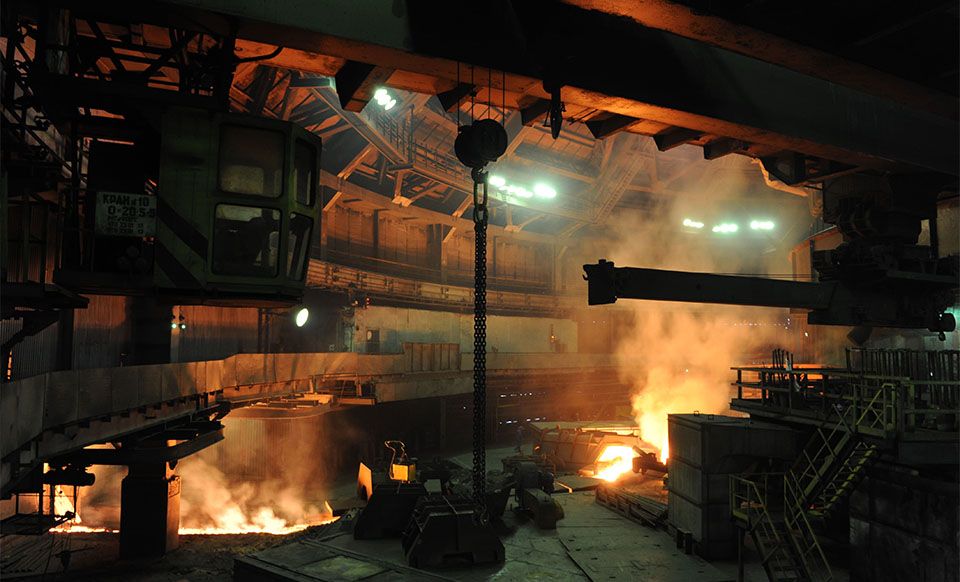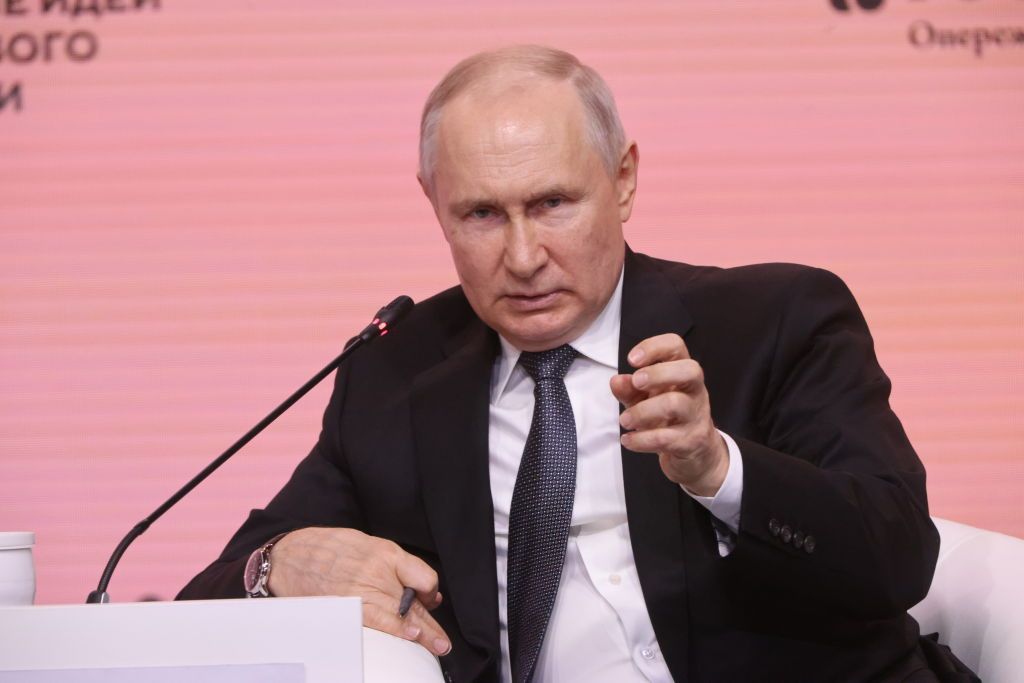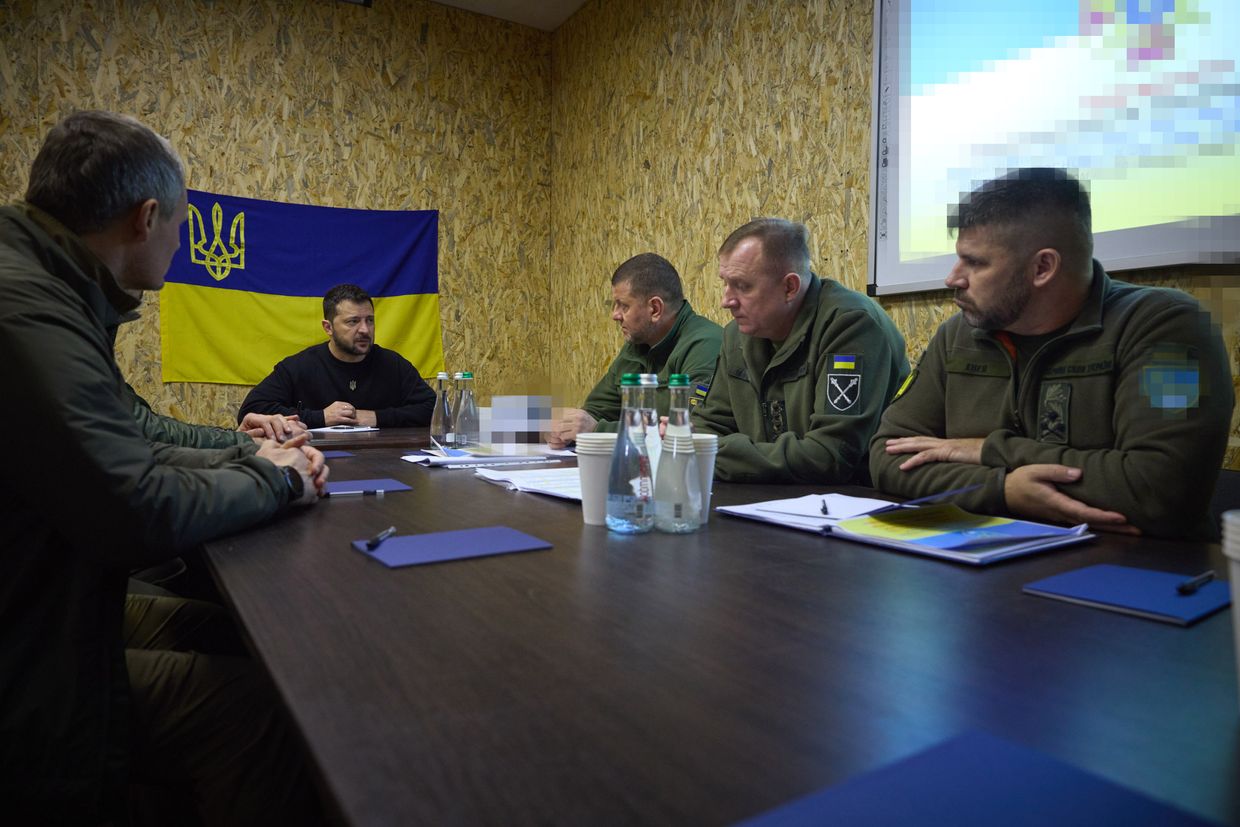Ukraine war latest: Military scales down some operations over foreign aid shortages

Key developments on Dec. 18:
- Commander: Ukrainian military scales down some operations over foreign aid shortages
- Zaluzhnyi: Unlikely that secrets were discussed in room with recording device
- Russia seizes properties belonging to 77 individuals, companies in occupied Crimea
- IMF chief: Ukraine's economy depends on continued aid
- Defense Ministry presents new procurement agency
Ukrainian forces face shortages of artillery shells and have to scale down some military operations due to a decrease in foreign aid, Brigadier General Oleksandr Tarnavskyi, who commands troops fighting on the eastern front lines, told Reuters on Dec. 18.
The announcement comes as both the U.S. and the EU have struggled to secure billion-dollar funding packages for Ukraine. Foreign defense deliveries began running dry as $61 billion from the U.S. remains stuck in Congress due to political infighting, and Hungary blocked the $55 billion in EU funding for Kyiv.
“There's a problem with ammunition, especially post-Soviet (shells) — that's 122 mm, 152 mm. And today, these problems exist across the entire front line,” said Tarnavskyi, who commands the Tavria group of forces.
The general called the shortage of shells a “very big problem” and connected it to the decrease in foreign military assistance.
“The volumes that we have today are not sufficient for us today, given our needs. So, we're redistributing it,” the commander added, explaining that the military is scaling down its tasks as a result.
Moscow is also dealing with ammunition problems, the general said, without providing further details.
Russia's advantage in artillery shells has long been one of the key obstacles pointed out by Ukrainian commanders.
Moscow's defense industry may be able to increase its production to 2 million shells annually in the next few years, an undisclosed Western official told Reuters in September.
Domestic industry is also not Russia's only source of supplies, as it allegedly managed to secure at least 1 million rounds from North Korea.
This number is still not sufficient to cover Russia's war needs, as its troops reportedly fired between 10 million and 11 million shells in the first year of the war.
In turn, Western deliveries play a major role in Ukraine's artillery arsenal, namely the 155 mm NATO-standard rounds.
The EU pledged to deliver 1 million shells to Ukraine by the spring, although many worry that the plan will miss this deadline. Around half of the number is expected to be delivered by the end of this year.
Meanwhile, Kristalina Georgieva, managing director of the International Monetary Fund, told the Financial Times that billions of dollars in financial assistance from the U.S. and EU is vital to Ukraine's economic recovery.
Georgieva said that Ukraine's economy could likely withstand a funding delay of “a couple of months,” but a longer gap would put the nation's path to economic recovery at serious risk.
Zaluzhnyi: Unlikely that secrets were discussed in room with recording device
The General Staff of Ukraine's Armed Forces confirmed media reports on Dec. 18 that recording devices were found in offices used by Commander-in-Chief Valerii Zaluzhnyi and his staff.
Ukrainska Pravda reported on Dec. 17, citing sources in law enforcement, that a recording device was found in Zaluzhnyi's new office. The media outlet reported that similar devices were found in the offices of several of his employees.
The next day, Zaluzhnyi told RBC Ukraine news agency that the room in which a recording device was found had not been used in a long time, and it's unlikely that any state secrets were captured by it.
The general said he had planned to use the room in which one of the devices was discovered for future work, including on Dec. 18, but there had been a “significant break” since its last use.
Zaluzhnyi did not speculate on who might have placed the item there, saying instead, “it's a war” and “anything can happen.”
According to Ukrainska Pravda, these devices were uncovered during a routine inspection of new premises intended for use by the commander-in-chief.
The Security Service of Ukraine (SBU) commented on the news on Dec. 17, saying, “The equipment was not found directly in Zaluzhnyi's office but in one of the rooms that could be potentially used by him for work in the future.”
The SBU said preliminary information indicated that the device was inactive, and added that it had begun a criminal investigation into the matter.
Russia keeps seizing properties in occupied Crimea
Russia has “nationalized” 1,150 properties that belong to 77 individuals and companies in occupied Crimea because of their owners' supposed “anti-Russian activities,” Russian-installed official Vladimir Konstantinov said on Dec. 18.
Moscow-run administration of Crimea announced in February 2023 that hundreds of high-value pieces of Ukrainian-owned real estate on the occupied peninsula would be “nationalized.”
Sergey Aksyonov, the Russian-installed head of occupied Crimea, added in September that real estate “belonging to foreigners who committed unfriendly actions towards Russia” would be sold.
Konstantinov said on Dec. 18 that the list of properties seized included luxury hotels, banks, including a branch of the State Reserve Bank of Ukraine, factories, and property belonging to well-known Ukrainian oligarch Viktor Pinchuk.
RFE/RL's Crimean service reported in October that Russian-installed authorities in occupied Crimea had seized and subsequently auctioned off an apartment in the city of Yalta belonging to the family of President Volodymyr Zelensky.
A Russian woman from Moscow bought the apartment for more than 44 million rubles ($477,000).
Umerov unveils new procurement agency as part of anti-corruption efforts
Defense Minister Rustem Umerov introduced in an opening presentation on Dec. 18 the state enterprise State Logistics Operator (DOT), a new procurement agency for Ukraine's Armed Forces.
The agency is responsible for all non-military purchases, such as food, fuel, or clothes, some of which became the center of two corruption scandals under the Defense Ministry's previous leadership.
“This is not just a presentation of a new procurement agency. This is the start of a new public procurement architecture in Ukraine's defense sector,” Umerov said.
“This architecture is built according to international standards and NATO principles in coordination with our international partners.”
The defense minister noted that corrupt practices in defense purchases plagued Ukraine for decades, stressing that the country needs to eliminate the “Soviet, oligarchic” approach to public funds.
For their professional services, the DOT's employees will receive a “justified and transparent percentage of the orders,” said Umerov.
Also speaking at the opening conference, Commander-in-Chief of Ukraine’s Armed Forces, General Valerii Zaluzhnyi, thanked the ministry for the undertaken reform.
“The Armed Forces must concentrate on their combat tasks, not on obtaining food, clothes, or means of protection,” Zaluzhnyi said.
According to the general, the DOT should supply the military with high-quality and timely purchases. Some of the agency's chief tasks should be the standardization of procurement procedures and their digitalization, he added.
Two major corruption scandals preceded the ousting of previous Defense Minister Oleksii Reznikov, one regarding inflated prices for food supplies and the other connected to low-quality winter jackets.
When introducing Umerov as Reznikov's successor in September, President Volodymyr Zelensky named increased transparency in defense procurement as one of the new minister's key tasks.
The Defense Ministry appointed Arsen Zhumadilov as the DOT's director on Nov. 1, with the planned launch of the agency in December. The first deliveries are expected in the second quarter of 2024.
















